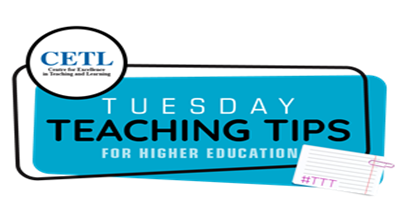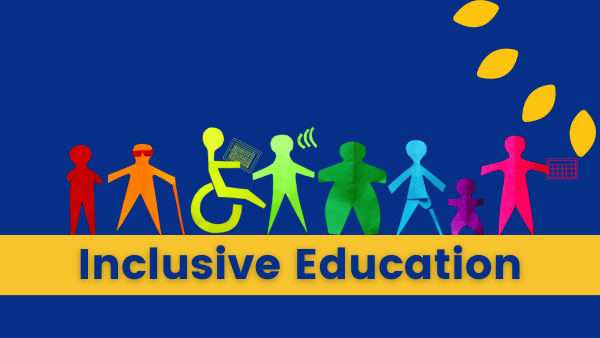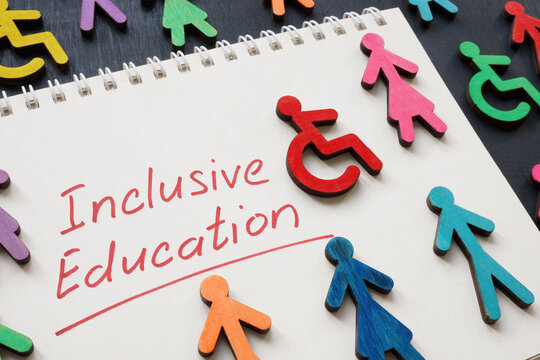Good day Colleagues,
Welcome back to our TTT Blog, a place where we provide you with the current tips and resources that support you on the path to teaching excellence.
As the mid-semester phase comes to an end, and progresses into the end-of semester (examination) season, we would like to explore the primary tenets of inclusive education. Every day and throughout every semester students come to you with their diverse backgrounds, circumstances, and learning needs, with the expectations that you know how or will satisfy these needs. This can seem quite daunting given the expansive implications of such expectations. If you would like to know a little bit about inclusive education and your role as a educator, this blog post is particularly for you.
A – What is Inclusive Education?
Inclusivity in education refers to the creation of learning environments in which all students are welcomed, supported and have equal access to quality education, regardless of their needs or abilities. More specifically, inclusive education involves adapting teaching methods, curricula and school environments and facilities that facilitate meaningful participation and belonging for every student. Inclusive education is grounded by several core principles which include:
1. Equity and Access: ensuring that all students, including persons the differently-abled, have equal access to educational opportunities.
2. Diversity and Belonging: valuing diversity and creating a sense of belonging for all students, and thereby developing a welcoming/inviting school culture for all.
3. Adaptability: adapting learning environments, teaching methods and curricula to meet the diverse needs of all learners.
4. Full Participation: enabling ALL students to fully participate in the learning experience.
5. Togetherness: ensuring that all students learn together in the same environments, physical spaces (e.g. lecture halls), and facilities.
B – The Main Elements of Inclusive Education
Inclusive education is not one-dimensional, nor is it a one-size-fits-all approach. There are several facets that make inclusive education effective. For this reason, inclusive education must be an institutional approach. The following are some of the different facets of inclusive education:
1. Curriculum and Teaching: Inclusive educational practitioners cater to the needs of their learners by adapting their teaching approaches, use diverse/differentiated instructions and materials. They also ensure that the curriculum, assessments and learning activities cater to the collective and individual needs of their learners.
2. The Institutional Environment: Inclusive schools are designed to be accessible and welcoming to all students, including the differently-abled.
3. Support Systems Inclusive education relies heavily on a strong battery of support services and systems that include training educators, the provision of specialized staff, departments and resources to support individual needs
4. Networking and Collaborations: Collaboration among the different stakeholders such as educators, support staff and other stakeholders is tantamount for creating an effectively inclusive learning environment.
C – The CETL’s Teaching and Learning Week – Open Access
The CETL is happy to announce its collaboration with several inclusive education specialists for its annual Teaching and Learning Week, scheduled for 14th – 16th April 2025. The theme of this series of events is Open Access, and comprises the following series of online training events in inclusive education:
1. Open Access: Open Educational Practices – A Virtual Panel Discussion (Monday 14th April, 2025 @ 1:00 – 3:00 PM)
To equip you with the knowledge and skills in harnessing the benefits of open/inclusive teaching and learning, the Centre for Excellence in Teaching and Learning (CETL) is hosting this online discussion panel entitled Open Access: Educational Practices. As the first official event of the CETL’s annual Teaching and Learning Week, this panel discussion comprises a cadre of specialists involved in teaching and learning, as well as support services, who will explore and sensitize you and your students to the different teaching strategies and initiatives, along with the available support services/structures that facilitate inclusive education that make teaching and learning accessible to all. More specifically, the discussion will encompass concerns related to equity, inclusion, diversity, as well as community health, mental wellness and self-care. This discussion will therefore be an asset to both you and your students. To Register for this virtual panel discussion, please click on the following link or image:
 Register Here
Register Here
2. Open Access: Inclusive Education (Embracing Inclusive Education in Higher Education Contexts) – (Tuesday 15th April, 2025 @ 10:00 AM – 12:00 PM)
This session will delve into the importance of creating welcoming and supportive learning environments that cater to the diverse needs of all students in higher education contexts. Discover innovative strategies and practical approaches to foster inclusivity in your classroom, ensuring that every learner has the opportunity to thrive.
 Register Here
Register Here
3. Open Access: Integrating Open Educational Resources (OERs) in Your Course – (Wednesday 16th April, 2025 @ 1:00 – 3:30 PM)
This interactive session will guide educators through the essentials of Open Educational Resources (OERs) and how to effectively integrate them into their courses. Whether you’re interested in adopting existing open content or creating your own, this session will provide a practical roadmap. Participants will explore what are OERs, the benefits of open access, how to find and evaluate quality open educational resources, and how to navigate open licenses. Participants will also be introduced to tools for locating, adapting, and developing OERs, while also covering strategies for alignment with course objectives and ensuring accessibility and inclusivity.
The aforementioned events in our Open Access Teaching and Learning Week are all geared towards training educational stakeholders (teaching, administrative and support staff, as well as undergraduate and postgraduate students) in key skills in effectively inclusive education.
We hope the aforementioned resources are helpful.
Should you need any further assistance, or would like to let us know if these blog posts are helpful to in any way, please feel free to contact us.
Regards,
The Centre for Excellence in Teaching & Learning (CETL),
The University of the West Indies (UWI),
St. Augustine.
Previous TTT Posts you may also like:
- MyeLearning Access and Support
- Myelearning, Resources, Activities and Universal Design for Learning (UDL)
- Universal Design for Learning (UDL) and H5P
- Active Learning and MyeLearning Activities
- SECTIONS for Technology Selection
- Research and the Power of Artificial Intelligence (AI)h
- Formative Assessments and the MyeLearning GradeBook
- Aligning Learning Outcomes with Assessments
- Importance of a Community of Practice (COP)




